In the final week of our series, the Irish Farmers Journal spoke with new entrants and young farmers from across the country.
Entering what is a testing industry can be daunting for many at first, but you do not have to look too far before you find success stories of those farmers who have faced the challenges head on.
‘Industry terms a lot to
digest for new entrants’
Declan Cahill – new entrant,
Thurles, Co Tipperary
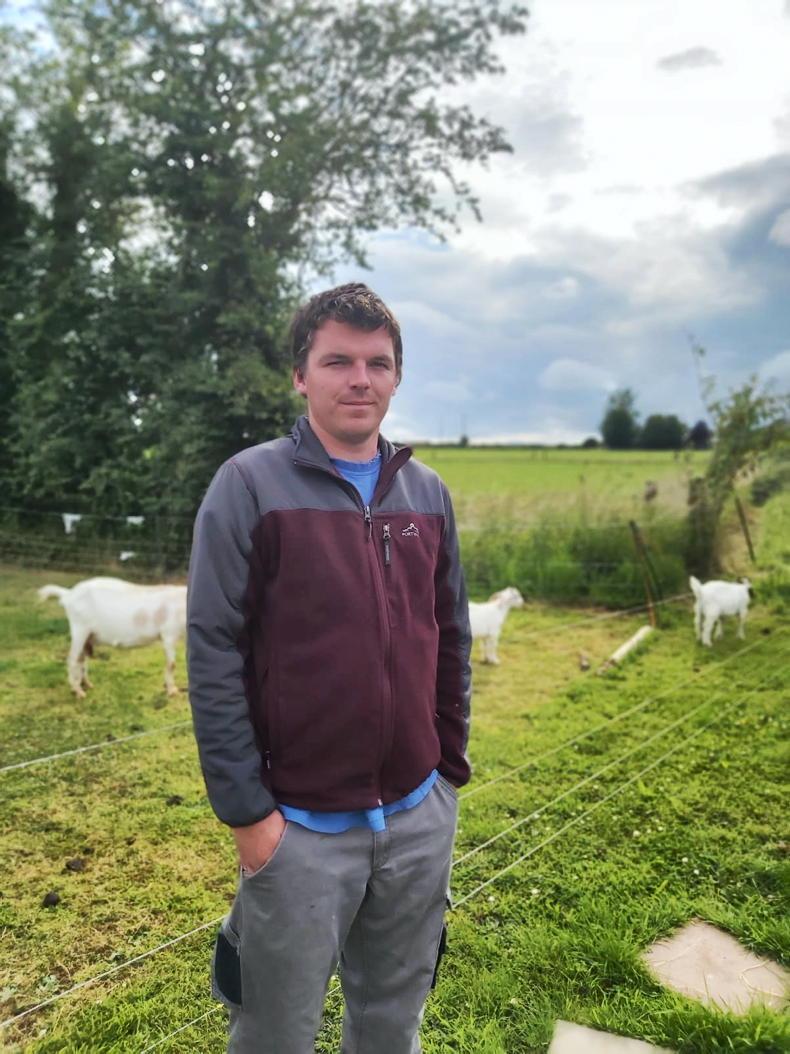
Declan Cahill.
“I started farming just before Christmas 2020. As a young farmer starting out with no previous experience, I found it challenging to understand the technical aspects to the industry.
“Abbreviations like BPS and CAP are confusing for those who have never farmed before. At the start, I relied on other farmers to bring me up to speed on the basics.
“After a while, one farmer told me about Teagasc and from there I got on the road to completing my Green Cert. The Green Cert is very advantageous for a first-generation farmer like myself but I find it could be a bit more specialised to suit the different enterprise types.
“I am a goat farmer and for the most part the Green Cert focuses on cattle. I’d prefer if the course was split into subjects, offering candidates to pick the most relevant topics to suit their home situation.
“My partner inherited 27 acres and the land hadn’t been farmed for over 70 years previous to last Christmas. The ground is rough and the hedges are overgrown so that’s why we have decided to get into goat farming.
“We will rear goats for their meat and what we don’t eat ourselves we will sell. I’m going to set up a business shortly where I will sell goat and duck meat.
“Protecting the environment and being self-sufficient is a big goal of mine and this is why I have decided to become a farmer.”
‘Fairer prices more
important than schemes’
Ciarán Clancy –
sucklers, north
Co Leitrim
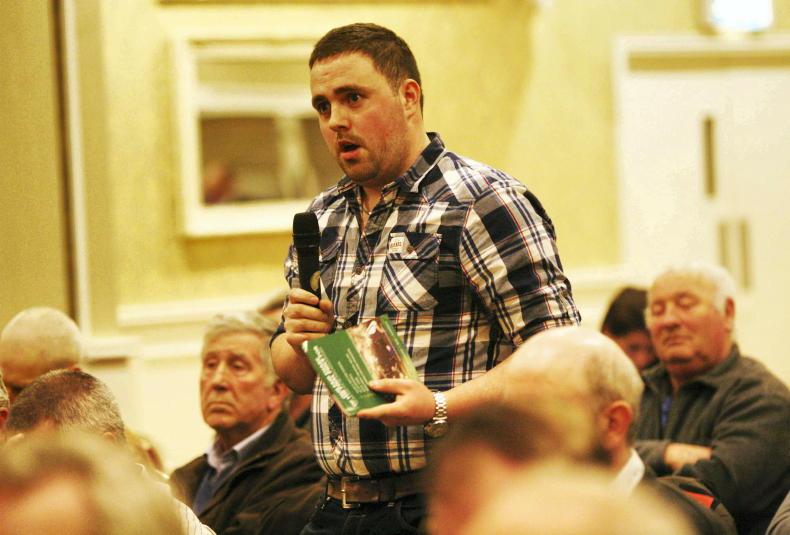
Ciarán Clancy.
“A young farmer should start building up stock on a friend or relative’s farm, if possible, before going into farming themselves.
“If you were to buy all your breeding stock at the one time, it would take a number of years before you would see a return.
“Having a base of stock to work from is essential when entering farming on your own.
“A scheme to help with buying a tractor would be great for young farmers. Tractor purchases are not currently included under mainstream TAMS, but a tractor is an essential piece of machinery on a farm of any size.
“A shorter enrolment period for schemes would also attract a lot more young farmers. Most schemes look for farmers to commit to actions over a number of years, which is a lot easier a task for established farmers with a more permanent system.
“A scheme requiring one or two years’ commitment would be easier for young farmers to enrol in, as their circumstances change while setting up their enterprise.
“What young farmers would value more than dedicated schemes are fairer prices in the marketplace. We are a lot more commercially focused and would prefer to not have to rely on schemes to deliver the income needed to farm.”
‘Off-farm job a necessity for many systems’
James Geary –
dairy calf to
weanling producer, Co Waterford

James Geary.
“I got into farming more because it was something I was raised with than the expected financial gain. Although I have managed to turn a margin on the system, working on the side is necessary to support a full income.
“For a young farmer not dairying, this job was essential when the availability of credit is lacking to the extent that it is. Money needs to be coming in to pay bills throughout the year before stock is sold and an off-farm job allows this.
“Elements of schemes, such as the higher rate of payment in TAMS, definitely can help young people get started in agriculture.
“They are needed for young farmers to get set up when costs are so high.
“I would say that young farmers do realise the opportunities presented by new technologies and practices more than older farmers. Younger farmers getting involved in discussion groups will help bring on older, established farmers’ enterprises.
“Young farmers are more likely to adopt wider requirements under schemes. I would be willing to go above the standard management practices if incentivised by a scheme, such as accepting additional herd health requirements.”
‘Perfect your skills and the rest will look after itself’
Páidí Kelly – director of
TeamAg Advisory, Co Cork
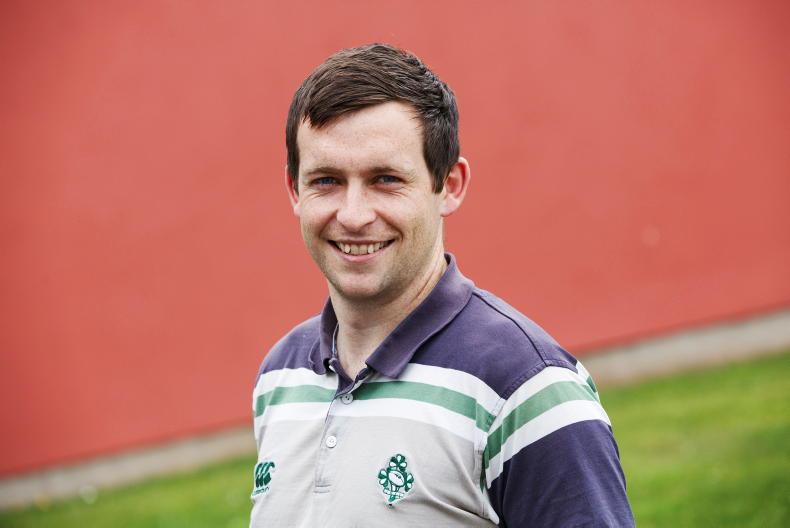
Páidí Kelly. \ Donal O'Leary
“Young people don’t have to own a farm or come from a farm to gain access to this industry.
“I’ve seen more than 60 non-family arrangements set up where young people get farming in their own right via lease, partnership and share-farming arrangements.
“I’m inspired and encouraged by this group. They have invested heavily with their time in improving their skillset to meet the challenge.
“One way to help young people join the sector is subsidised skills training and support for new joint venture arrangements. With the right skillset, young people will be able to find a way around the finance and land access aspects.
“Many pick up their skills from top-class farmers at home and abroad before setting out on their own. A young person needs to be excellent at all things livestock, grass, people and business.
“The opportunities for joint ventures are extremely positive as there’s a huge number of older farmers out there without a successor.
“Some dairy farmers who have expanded significantly in recent years will be looking for young people to join their operation also. Having the right skills is the essential aspect.”
‘The goalposts are moving very often for young farmers’
John Keane –
Macra na Feirme president

John Keane.
“The Climate Action Bill is high up on the agenda of young farmers and the need for accounting for biogenic methane in it.
“I feel there is a need for greater incentives to encourage farmers to engage with climate-friendly practices.
“It’s important to ensure that young farmers aren’t negatively impacted by the bill if it were to put limits on production. This would have a very negative impact on the repayment of loans by these farmers.
“The goalposts are moving very often on this topic. I think we should take the science-based approach, which is loud and clear on biogenic methane. Improving [methane] inhibitors is the preferred option. The blunt use of capping stock numbers isn’t feasible.”
Land mobility
“Access to land across all the different enterprises is really difficult and it’s something that needs to be addressed in the context of the next CAP.
“We have anecdotal evidence too that some young farmers are finding it challenging to access finance.
“Some young farmers in the Glanbia catchment have reported difficulty getting finance as a result of the ongoing processing dispute [with An Taisce].
“I’m disappointed in the Commission’s direction in terms of CAP and the Land Mobility Service.
“The service has been highlighted as an exemplary model which could be copied across all EU member states yet there’s no support given to back up the recommendation. The Government must include the Land Mobility Service in Ireland’s CAP strategic plan.”
CAP
“We requested that 4% of direct payments are to be ring-fenced for young farmers. We need delivery of a succession scheme under the next CAP and a bigger pool to fund it.
“I was heartened to see Minister McConalogue include the forgotten farmers in the programme for government.
“A pool of money will be need for those individuals also.
“Eco schemes will require a lot of joined-up thinking and they must ultimately be complementary to our farming practices. Time will be needed to create these result-based schemes which are deliverable.
“Murmurings of an increase in young farmer TAMS funding from 60% to 80% are hugely welcomed.
“The five-year rule under many of the CAP measures is very restrictive.
“If you start out at 22 and avail of the schemes you’re no longer entitled to young farmer supports at 27.
“Ultimately, we can’t afford to have any backsliding in the next CAP. Further funding will be need to achieve our current goals and will create achievable targets.”
In the final week of our series, the Irish Farmers Journal spoke with new entrants and young farmers from across the country.
Entering what is a testing industry can be daunting for many at first, but you do not have to look too far before you find success stories of those farmers who have faced the challenges head on.
‘Industry terms a lot to
digest for new entrants’
Declan Cahill – new entrant,
Thurles, Co Tipperary

Declan Cahill.
“I started farming just before Christmas 2020. As a young farmer starting out with no previous experience, I found it challenging to understand the technical aspects to the industry.
“Abbreviations like BPS and CAP are confusing for those who have never farmed before. At the start, I relied on other farmers to bring me up to speed on the basics.
“After a while, one farmer told me about Teagasc and from there I got on the road to completing my Green Cert. The Green Cert is very advantageous for a first-generation farmer like myself but I find it could be a bit more specialised to suit the different enterprise types.
“I am a goat farmer and for the most part the Green Cert focuses on cattle. I’d prefer if the course was split into subjects, offering candidates to pick the most relevant topics to suit their home situation.
“My partner inherited 27 acres and the land hadn’t been farmed for over 70 years previous to last Christmas. The ground is rough and the hedges are overgrown so that’s why we have decided to get into goat farming.
“We will rear goats for their meat and what we don’t eat ourselves we will sell. I’m going to set up a business shortly where I will sell goat and duck meat.
“Protecting the environment and being self-sufficient is a big goal of mine and this is why I have decided to become a farmer.”
‘Fairer prices more
important than schemes’
Ciarán Clancy –
sucklers, north
Co Leitrim

Ciarán Clancy.
“A young farmer should start building up stock on a friend or relative’s farm, if possible, before going into farming themselves.
“If you were to buy all your breeding stock at the one time, it would take a number of years before you would see a return.
“Having a base of stock to work from is essential when entering farming on your own.
“A scheme to help with buying a tractor would be great for young farmers. Tractor purchases are not currently included under mainstream TAMS, but a tractor is an essential piece of machinery on a farm of any size.
“A shorter enrolment period for schemes would also attract a lot more young farmers. Most schemes look for farmers to commit to actions over a number of years, which is a lot easier a task for established farmers with a more permanent system.
“A scheme requiring one or two years’ commitment would be easier for young farmers to enrol in, as their circumstances change while setting up their enterprise.
“What young farmers would value more than dedicated schemes are fairer prices in the marketplace. We are a lot more commercially focused and would prefer to not have to rely on schemes to deliver the income needed to farm.”
‘Off-farm job a necessity for many systems’
James Geary –
dairy calf to
weanling producer, Co Waterford

James Geary.
“I got into farming more because it was something I was raised with than the expected financial gain. Although I have managed to turn a margin on the system, working on the side is necessary to support a full income.
“For a young farmer not dairying, this job was essential when the availability of credit is lacking to the extent that it is. Money needs to be coming in to pay bills throughout the year before stock is sold and an off-farm job allows this.
“Elements of schemes, such as the higher rate of payment in TAMS, definitely can help young people get started in agriculture.
“They are needed for young farmers to get set up when costs are so high.
“I would say that young farmers do realise the opportunities presented by new technologies and practices more than older farmers. Younger farmers getting involved in discussion groups will help bring on older, established farmers’ enterprises.
“Young farmers are more likely to adopt wider requirements under schemes. I would be willing to go above the standard management practices if incentivised by a scheme, such as accepting additional herd health requirements.”
‘Perfect your skills and the rest will look after itself’
Páidí Kelly – director of
TeamAg Advisory, Co Cork

Páidí Kelly. \ Donal O'Leary
“Young people don’t have to own a farm or come from a farm to gain access to this industry.
“I’ve seen more than 60 non-family arrangements set up where young people get farming in their own right via lease, partnership and share-farming arrangements.
“I’m inspired and encouraged by this group. They have invested heavily with their time in improving their skillset to meet the challenge.
“One way to help young people join the sector is subsidised skills training and support for new joint venture arrangements. With the right skillset, young people will be able to find a way around the finance and land access aspects.
“Many pick up their skills from top-class farmers at home and abroad before setting out on their own. A young person needs to be excellent at all things livestock, grass, people and business.
“The opportunities for joint ventures are extremely positive as there’s a huge number of older farmers out there without a successor.
“Some dairy farmers who have expanded significantly in recent years will be looking for young people to join their operation also. Having the right skills is the essential aspect.”
‘The goalposts are moving very often for young farmers’
John Keane –
Macra na Feirme president

John Keane.
“The Climate Action Bill is high up on the agenda of young farmers and the need for accounting for biogenic methane in it.
“I feel there is a need for greater incentives to encourage farmers to engage with climate-friendly practices.
“It’s important to ensure that young farmers aren’t negatively impacted by the bill if it were to put limits on production. This would have a very negative impact on the repayment of loans by these farmers.
“The goalposts are moving very often on this topic. I think we should take the science-based approach, which is loud and clear on biogenic methane. Improving [methane] inhibitors is the preferred option. The blunt use of capping stock numbers isn’t feasible.”
Land mobility
“Access to land across all the different enterprises is really difficult and it’s something that needs to be addressed in the context of the next CAP.
“We have anecdotal evidence too that some young farmers are finding it challenging to access finance.
“Some young farmers in the Glanbia catchment have reported difficulty getting finance as a result of the ongoing processing dispute [with An Taisce].
“I’m disappointed in the Commission’s direction in terms of CAP and the Land Mobility Service.
“The service has been highlighted as an exemplary model which could be copied across all EU member states yet there’s no support given to back up the recommendation. The Government must include the Land Mobility Service in Ireland’s CAP strategic plan.”
CAP
“We requested that 4% of direct payments are to be ring-fenced for young farmers. We need delivery of a succession scheme under the next CAP and a bigger pool to fund it.
“I was heartened to see Minister McConalogue include the forgotten farmers in the programme for government.
“A pool of money will be need for those individuals also.
“Eco schemes will require a lot of joined-up thinking and they must ultimately be complementary to our farming practices. Time will be needed to create these result-based schemes which are deliverable.
“Murmurings of an increase in young farmer TAMS funding from 60% to 80% are hugely welcomed.
“The five-year rule under many of the CAP measures is very restrictive.
“If you start out at 22 and avail of the schemes you’re no longer entitled to young farmer supports at 27.
“Ultimately, we can’t afford to have any backsliding in the next CAP. Further funding will be need to achieve our current goals and will create achievable targets.”










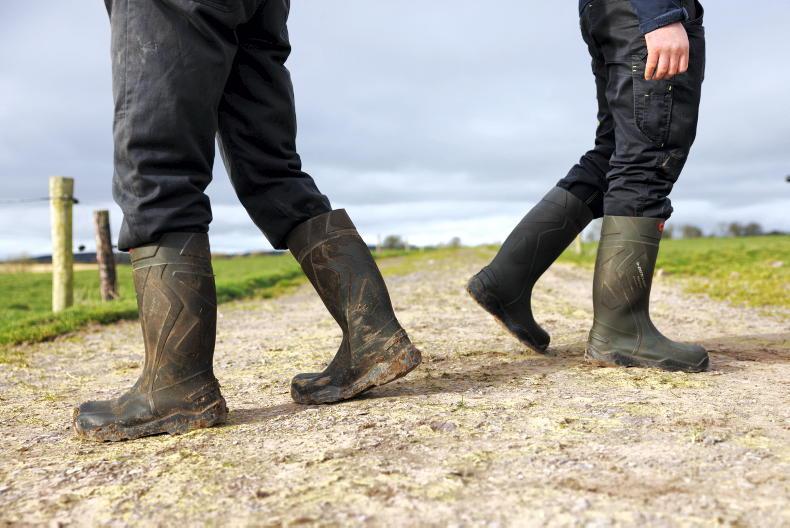
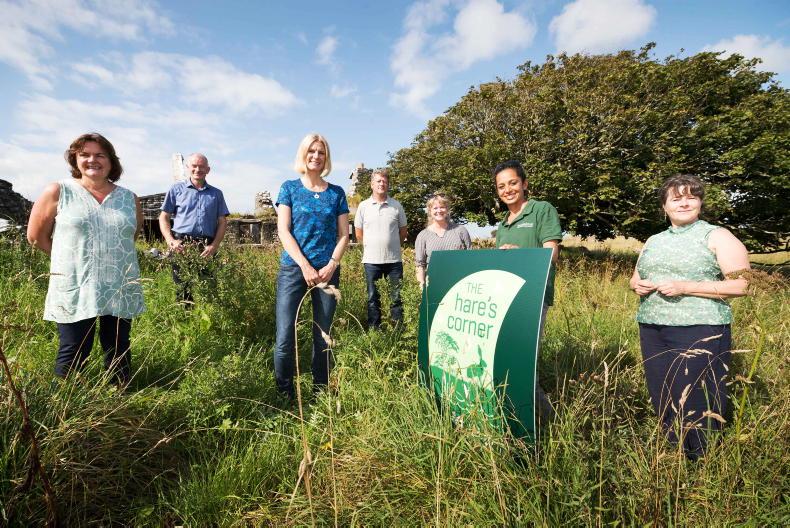

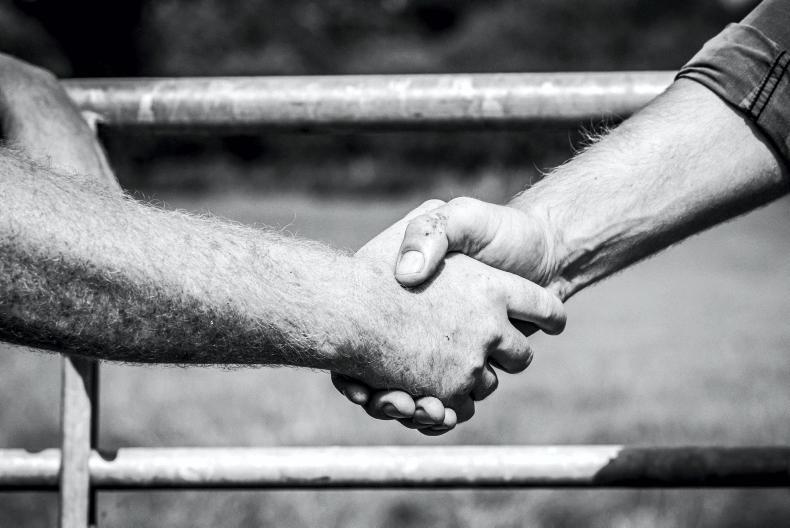
SHARING OPTIONS